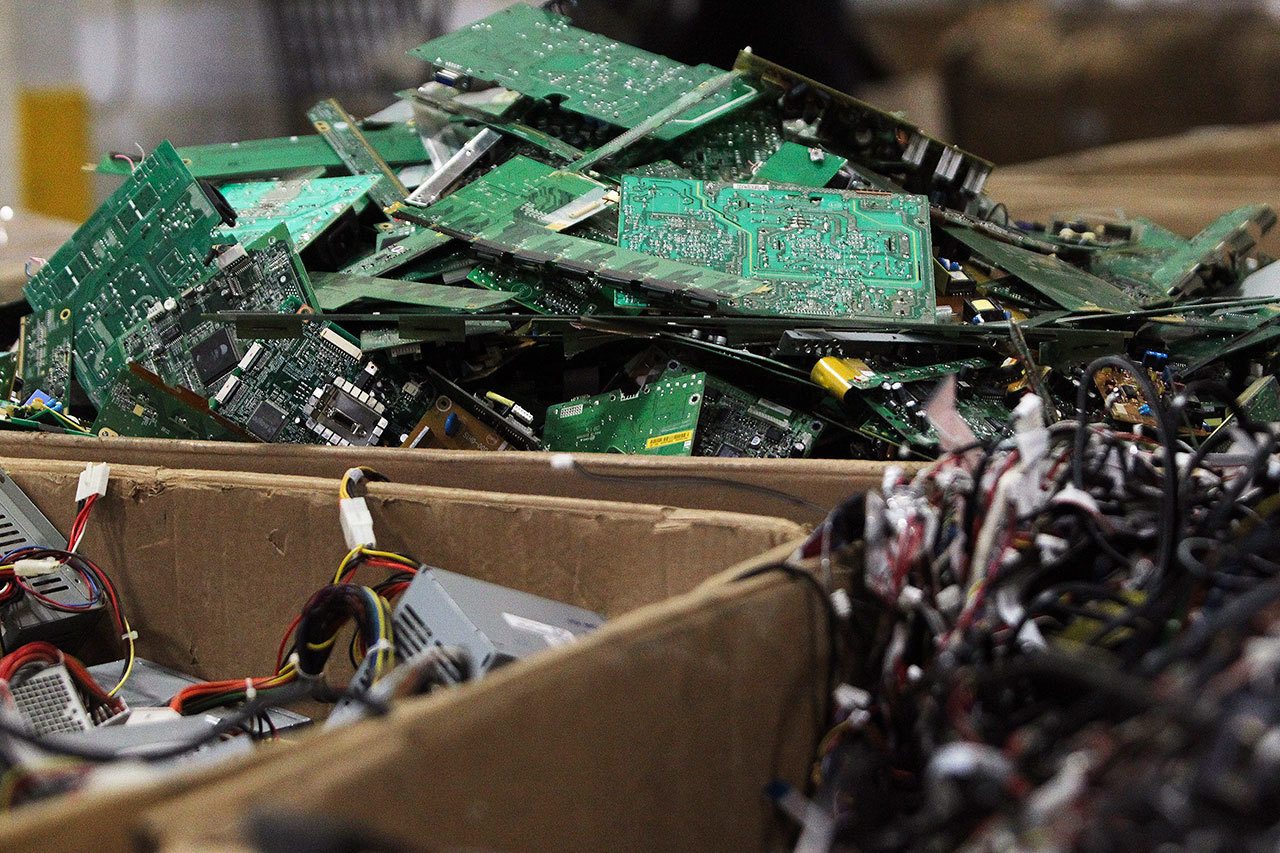By The Herald Editorial Board
It’s not the largest fine ever meted out by the Washington State Department of Ecology; that dubious honor goes to Volkswagen, which was fined $176 million in July for violating the state’s clean air laws when it tinkered with software in its diesel vehicles to fool emission control checks.
But a $444,000 fine does count as one of the agency’s largest and is intended to send a painful message to Seattle-based Total Reclaim, a company that collects electronic waste for recycling, as well as serve as a reminder to other recyclers participating in the state’s E-Cycle program.
The Department of Ecology alleged Thursday that Total Reclaim illegally disposed of flat-screen TVs and computer monitors containing fluorescent tubes that held toxic mercury, shipping them to Hong Kong where they were broken apart in the open by unprotected workers.
Total Reclaim has 30 days to appeal the state’s decision. KOMO-TV reported Total Reclaim intends to challenge the fine but is cooperating with Ecology and ended the export of materials before the agency began its investigation.
“Total Reclaim has been a leading electronics recycler in Washington, so they knew what they were doing was wrong,” said Laurie Davies, manager of Ecology’s Waste 2 Resources program in a press release. “This penalty is a reminder that recyclers can’t take shortcuts when it comes to properly managing toxic chemicals.”
And it was the very reason the E-Cycle program was created, to allow consumers to easily and without charge recycle computers, monitors, TVs and other electronic gear, much of which contains toxic materials. Along with mercury in newer electronics, older TVs and CRTs can contain several pounds of lead.
E-Cycle Washington, established by the Legislature in 2006, puts the financial responsibility for properly recycling electronic waste on the manufacturers of electronics. Those companies created an industry association to run the program that charges individual companies, which now number more than 400 participants, based on their market share and on the number of items being recycled.
It’s a concept that is spreading, most recently to the pharmaceutical industry. Health districts in King and Snohomish counties and elsewhere in the U.S., are requiring drugmakers to pay for the collection and proper disposal of prescription medications to prevent their abuse and to keep them out of the environment.
E-Cycle has been a great success, said Andrew Wineke, a spokesman for Ecology, removing and recycling more than 300 million pounds of e-waste from Washington state homes and offices since collections began in 2009. Having set a goal to recycle 26 million pounds in its first year, E-Cycle recycled more than 38.5 million pounds, increasing to a high of 45.2 million pounds in 2013. More than 42.6 million pounds were recycled in 2015, including 5.1 million in Snohomish County.
Even with programs such as Washington E-Cycle, much of the electronic waste that consumers believed was being responsibly recycled, is still being shipped overseas throughout Asia where it ends up in unregulated recycling yards and dumping grounds, releasing toxins into the environment and threatening the health of workers.
Aware of the problem, a Seattle based e-waste watchdog group, Basel Action Network, hid GPS tracking devices inside 200 old computers, TVs and printers, dropped them off at recycling centers and then tracked where they went. According to a June report by public radio network PRI, much of the waste did stay in the U.S. and was properly recycled, but about a third of the electronics ended up in Hong Kong and elsewhere.
Basal Action Network witnessed workers, without facemasks, taking sledge hammers to printers that exposed them to toner ink, which can cause respiratory problems, and working in a yard scattered with broken fluorescent tubes that would have emitted mercury vapor.
Among the “recycled” items tracked by the network to Hong Kong were those exported by Total Reclaim, the Department of Ecology said.
“The E-Cycle program was set up to prevent this material from entering the environment, whether that’s here or overseas,” said Wineke.
The actions of Total Reclaim, which like Volkswagen’s were an attempt to game the system, threaten not only health and environment but the public’s confidence in the state’s E-Cycle program. And electronic manufacturers, who are paying for the program, should be backing up the state in policing e-waste recycling.
The fine is a stiff one, but one where the punishment fits the willful abuse of trust.
Talk to us
> Give us your news tips.
> Send us a letter to the editor.
> More Herald contact information.

























